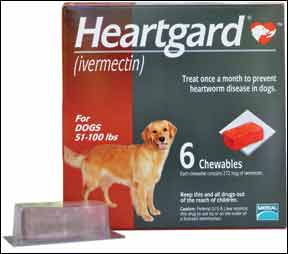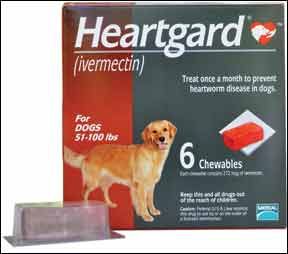The lawsuit filed by Kari Blaho-Owens, PhD, against Merial, her former employer, contains a number of serious allegations regarding Heartgard’s decreased efficacy and Merial’s knowledge of the problem.

288
Merial denies the allegations, and has released the following statement regarding the lawsuit:
“Merial is aware of the lawsuit filed against the company by former employee, Kari Blaho-Owens. As a matter of company policy, we do not comment on the details of pending litigation or on employee-related issues. However, Merial believes we have acted appropriately and responsibly in all matters related to the allegations. Merial will vigorously defend the case and will assert strong defenses to the claims made. An earlier complaint filed by this former employee has already been dismissed by the United States Department of Labor.
“Merial stands by the effectiveness of our products. We are confident that the Heartgard® (ivermectin) brands are highly effective when used in accordance with their FDA-approved labels. Moreover, Merial strictly adheres to all regulations relating to the reporting of adverse events involving any Merial product.”
We may never know whether all the details alleged in the suit are true. It might take years in court – or it might be settled out of court. But the suit makes for fascinating reading. Here are some of the key points in the suit (to read the entire complaint, see tinyurl.com/44c6c44):
– In November 2004, the FDA’s Center for Veterinary Medicine sent Merial a letter, stating “there were numerous reports of ineffectiveness for heartworm prevention despite ‘Heartgard Plus’ being used according to the label directions.” In August 2005, FDA requested that Merial stop claiming 100% effectiveness for Heartgard Plus in preventing heartworm infestation.
– In 2005, Merial conducted an internal investigation regarding the increase in the number of reported cases of the lack of efficacy of Heartgard.
– When she reviewed the results of the 2005 investigation, Dr. Blaho-Owens asserts that “Merial had been aware of serious lack of efficacy adverse events reported regarding ‘Heartgard Plus’ since as early as 2002.”
– Merial claimed that its investigation showed that the increase in lack of effectiveness claims was the direct result of increases in sales, lack of owner compliance, and other factors – not a failure of the active ingredients in Heartgard products. Dr. Blaho-Owens claims she found numerous problems with the review, including “using ‘cherry-picked’ data, so as the persons evaluating the data would be led to support the conclusion sought by Merial.”
– In 2007, Dr. Blaho-Owens conducted further investigation in an effort to determine why “global monthly reports and the quarterly pharmacovigilance meetings demonstrated an obvious trend toward the increase in lack of effectiveness reports.” She was unable to find any reasonable explanation other than loss of efficacy of the Heartgard products.
– In 2008, Dr. Blaho-Owens’ supervisor “instructed her to stop her investigation.” One of the reasons given was that Merial had conducted a laboratory study showing “that heartworms had developed resistance to the ‘Heartgard Plus’ active ingredients, ivermectin and/or pyrantel; and that Merial was actively working to reformulate ‘Heartgard Plus’ to make it more effective by adding additional drugs to the combination product.”
– In September 2009, Dr. Blaho-Owens was notified that Merial was named in a class-action lawsuit regarding ‘Heartgard.’
– Dr. Blaho-Owens claims that on September 11, 2009, she was instructed to destroy a document that was likely relevant to the pending class-action lawsuit. Dr. Blaho-Owens also claims she was instructed to stop generating any new analysis of data regarding Heartgard despite her ongoing concerns relating to the lack of efficacy of Heartgard.
– Dr. Blaho-Owens says she reported her concerns to Merial’s legal counsel. Shortly thereafter, Dr. Blaho-Owens says she learned that the Heartgard class-action suit concerned Merial’s refusal to change its labeling as per FDA order.
– In conclusion, Dr. Blaho-Owens’ suit alleges that “Merial fraudulently promoted and sold ‘Heartgard’ as 100% effective despite its knowledge since at least 2002, that ‘Heartgard’ products were substantially less than 100% effective, in violation of FDA regulations.” The suit says, “Merial knew about the LOE (lack of efficacy) problem since at least 2002.”





